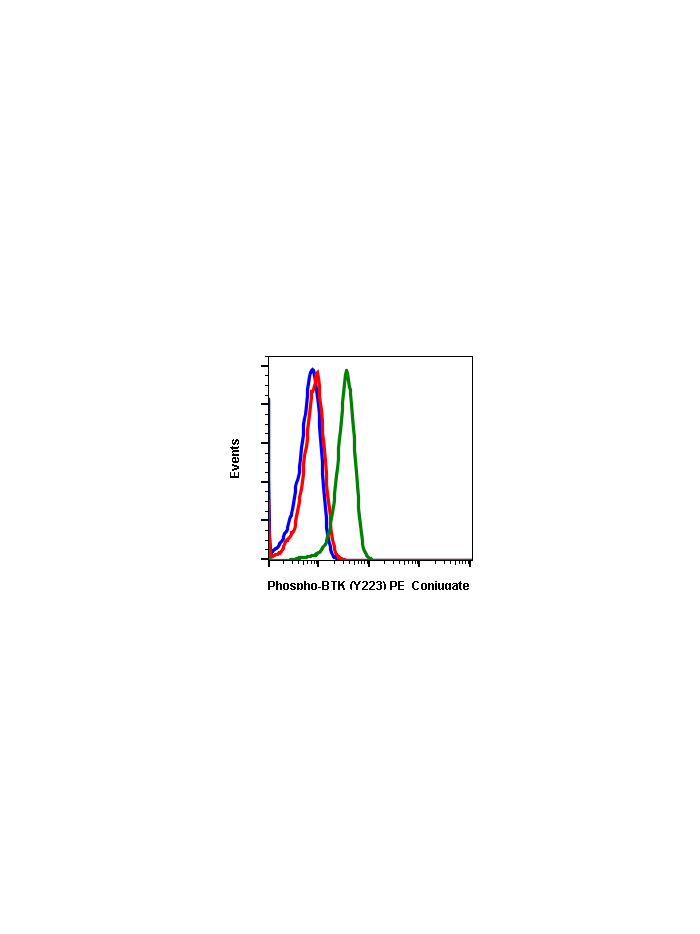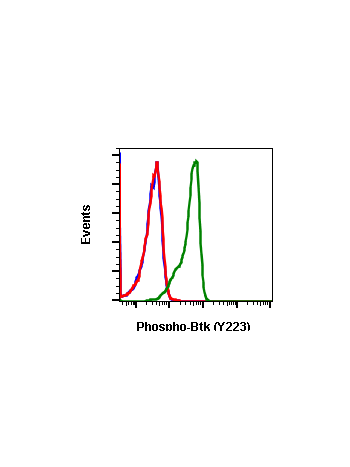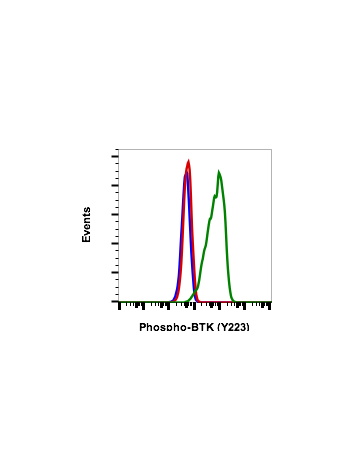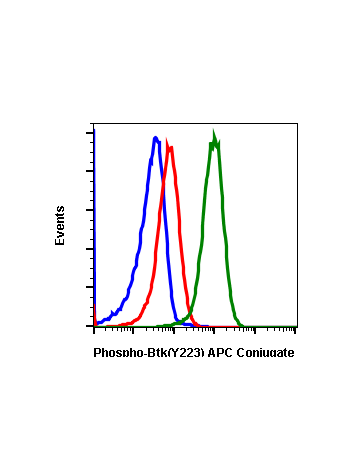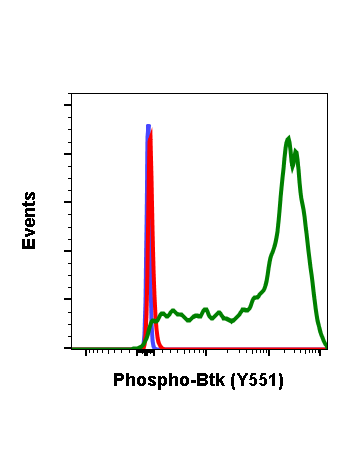Phospho-Btk (Tyr223) (B4) rabbit mAb PE conjugate
From
$118.80
In stock
Only %1 left
SKU
1172
Btk is a major node in the B-cell receptor signaling pathway, where it regulates B cell maturation, activation, survival, differentiation, and proliferation. Btk is activated by Src family kinases, including Lyn, which phosphorylates Btk at Tyr551. Upon phosphorylation at this site, Btk is recruited to the plasma membrane where autophosphorylation at Tyr223 occurs. The Btk signaling pathway is a major target of small molecule inhibitors for B-cell lymphoma, autoimmune diseases, and non-Hodgkin’s lymphomas. These inhibitors either form a covalent bond at Cys481 in the ATP-binding site or serve as reversible inhibitors that bind the SH3 pocket and stabilize inactive Btk.
| Applications | Flow Cytometry |
|---|---|
| Clone | BtkY223-B4 |
| Format | PE |
| Validated Reactivity | Human, Mouse |
| Cross Reactivity | Predicted to work with mouse, rat and other homologues. |
| Clonality | Monoclonal |
| Immunogen | A synthetic phospho-peptide corresponding to residues surrounding Tyr223 of human phospho Btk |
| Formulation | 1X PBS, 0.09% NaN3, 0.2% BSA |
| Isotype | Rabbit IgGk |
| Preparation | Protein A+G |
| Recommended Usage | For flow cytometric staining, the suggested use of this reagent is 5 µL per million cells or 5 µL per 100 µL of staining volume. It is recommended that the reagent be titrated for optimal performance for each application. |
| Storage | 2-8ºC |
| Pseudonyms | Bruton tyrosine kinase, Tyrosine-protein kinase BTK, Agammaglobulinemia tyrosine kinase, ATK, AGMX1, B-cell progenitor kinase, BPK |
| Uniprot ID | Q06187 |
| References | Liang, C, Tian D, Ren X, et al. (2018) European Journal of Medicinal Chemistry. 151: 315-326. |
Write Your Own Review

